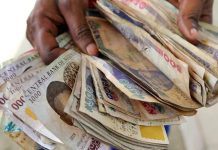Fitch Ratings, a renowned credit rating agency, has cautioned that the Central Bank of Nigeria’s (CBN) proposal to establish a foreign currency gateway bank could potentially have adverse effects on the liquidity of Nigerian banks.
The latest commentary from Fitch Ratings on Nigerian banks highlighted concerns regarding the proposed foreign currency gateway bank, as announced by the CBN.
Dr. Olayemi Cardoso, the Governor of the apex bank, recently unveiled plans to introduce a new foreign currency gateway bank aimed at alleviating the country’s forex crisis.
In a televised interview, Cardoso explained that the CBN intended to establish a single FCY gateway bank to streamline all correspondent banking activities, which are currently dominated by two major banks in the correspondent banking space.
The introduction of the gateway bank, part of the CBN’s medium-term strategy, aims to address Nigeria’s persistent forex challenges by centralizing correspondent banking activities.
In response to this proposal, Fitch Ratings commented, “The CBN’s announcement of plans to establish an FC gateway bank, as well as the declaration that a recent audit has invalidated $2.4 billion of overdue FX forwards, may have negative implications for the banking sector’s FC liquidity.”
Additionally, Fitch noted that due to the approximately 70% devaluation of the local currency since the end of 2022, impaired loans in the banking sector are expected to escalate at a faster rate than before the devaluation.
Fitch anticipates that the ratio of impaired loans (Stage 3 loans) in the banking sector will increase more rapidly following the devaluation, exacerbating credit concentration risks.
Furthermore, Fitch analyzed the impact of the CBN circular prohibiting banks from holding net long foreign currency positions, suggesting that it could lead to a further moderate depreciation of the naira.
The recent devaluation, coupled with the CBN’s measures, has led to a convergence of the official and parallel market exchange rates, significantly impacting the naira’s value.
While the move away from a managed exchange rate regime is seen as beneficial for restoring capital inflows and reducing foreign currency shortages, it also poses short-term macroeconomic risks, including heightened inflation and potential pressures on loan quality and capital adequacy within the banking sector.
As of February 13, the naira exchanged at 1,516/$, reflecting a significant devaluation from the previous year’s close. Despite these challenges, the CBN continues to navigate the complex dynamics of Nigeria’s forex market to stabilize the economy and ensure financial stability.











